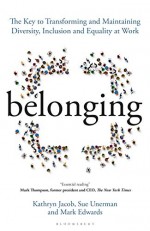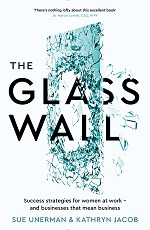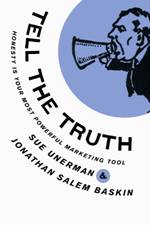To be match fit your mental health is as crucial as your physical health.
Recent events in the Olympics have highlighted this truth. It shouldn’t be so surprising should it?
Yet when Simone Biles – four-time Olympic gold medallist, multiple world champion and arguably the greatest gymnast of all time – withdrew from the team and all-around events at the Tokyo Olympics, it was headline news across the US and the world.
As Sam Quek, 2016 Olympic hockey medallist, speaking on BBC TV puts it mental & physical health are equally important. He added: “As the story unfolded .. I was getting more and more frustrated. I’d see these headlines popping up saying how Biles was weak, she wasn’t mentally strong enough to deal with the pressure. On social media, people were accusing her of using it as an excuse to pull out of the vault because she wasn’t performing as well. I just think its absolute nonsense. She said she wasn’t in the right mental frame of mind to go and perform well enough and that she could have caused herself some damage. Every sports person knows that if you go in half-cocked, you’re going to cause yourself an injury: none more so than in gymnastics. She has laid down a foundation for so many athletes and people around the world to say: ‘In this moment in time, inside, something didn’t feel right’. She had the bravery and the courage to pull out of the event.”
MediaCom global COO Josh Krichefski has introduced mental health allies to prioritise people taking care of themselves emotionally as well as physically at work, a move made doubly important by the events of the last year. It is intended to ensure that no-one is overwhelmed, and always has someone to talk to.
Yet it’s still much easier for many to say that they are sick with a tummy bug than that you cannot come to work because of the state of your mental health. Why on earth should one be more acceptable than the other?
We know from research conducted by Dynata for our book Belonging, that people who have been diagnosed with mental illness at work are subject to bias, harassment and inappropriate behaviour to a greater extent than the workforce in general. Overall 18% of workers have been diagnosed with a mental health problem, and this rises to 32% of under 25s. Of the respondents reporting mental health problems, Mind reports that 89% said that these affect their working life. We also know from extensive interviews that you don’t need to have had a mental health diagnosis to feel vulnerable and unable to work at the pace that most businesses in our sector require as business as usual.
Olympian, and chair of UK Sport Dame Katherine Grainger commented recently that there have been huge changes since the last Olympics in terms of openness. We’ve seen athletes who are clearly physically at the peak of fitness (or they would not be in Tokyo) own their mental health unfitness in a way that she says would have been unthinkable 5 years ago.
We must ensure that those changes and that openness is true for our industry too. As Ruby Wax puts it: “Your insides don’t know what your outsides do for a living”. Compassion for someone’s inability to run a marathon with a broken leg should be no different to compassion for someone’s inability to face workplace challenges with mental health issues.
We can only expect peak performance from people who we expect and encourage to really look after themselves, in every respect. We all need resilience at work and in life in general. Writing in the “Tao of Bowie,10 lessons from David Bowie’s life to help you live yours” Mark Edwards points out: “We could all use a little less suffering”.



48 ways to transform creativity #2
Tuesday, August 24th, 2021Stan Lee was the co-creator of Spiderman, the X-Men, Thor, the Incredible Hulk, Iron Man, the Fantastic Four, the Avengers, Ant Man and the Wasp, Nick Fury and more Marvel household names. He was born in 1922 and started work at 17 as an assistant at Timely Comics. The interesting point of his career came in the early 1960s, a time when most of the characters that are famous household names now, came into existence.
Until this point comics were highly disposable and aimed at 7 year old boys, this was the standard and profitable business model.
Stan Lee spent years churning them out, and didn’t really love them or believe in them.
No-one in the business wanted comics the way that Stan Lee wanted to write them, with flawed characters who were far from all American perfect heroes. And nobody wanted comics drawn as the peerless artist Jack Kirby wanted to draw them (he had been fired from DC for not sticking to their traditional vision).
Stan had had enough. He was on the point of quitting a job that was increasingly boring and mind numbing and deep down he still thought he was going to write the great American novel (an ambition since childhood). (He certainly did write great human stories, just not in novel form).
His wife said to him: “If you’re going to quit anyway, why don’t you first do what you really want to do with the comics. What is the worst that can happen? They can only fire you, and you are on the point of quitting anyway.”
Stan burnt his bridges. He developed a comic series like no other. A comic series that broke all the rules of the existing genre and business model. The first creation with Kirby was the Fantastic Four. It wasn’t aimed at 7 year olds, it was aimed at anyone who had ever suffered, ever struggled, ever needed hope. Spiderman soon followed, a character whose owned selfish mistake (trying to exploit his powers for financial gain), led to his uncle’s murder. He might have had super powers, but he also had guilt, remorse and teenage impulses. He was not an all American hero.
My personal favourite comic series, X-Men: The Dark Phoenix Saga, is one of the best descriptions of teenage girl turmoil I have ever read. When I met Stan Lee, in the 1990s over dinner, I was proud to thank him for that work, which had helped me through difficult times. Again, the lead character was far from perfect. Flawed characters, real consequences, and team members that fought with each other before coming together to work against a common enemy.
Sometimes at work, you can become very pragmatic about your career. You may reach a point where it is easier to second guess what the client wants from you rather than challenge the brief or push the boundaries of creativity. You only need to look at most of the advertising and comms that surrounds us to see a sea of conformity. Where all the advertisers in a sector all follow one route to market (tv ads showing cars driving down a mountain road or through a city scape) and the only distinguishing feature is the logo at the end. Our role in agencies is to drive competitive advantage. If you follow the crowd this is not what you get.
Sometimes you should go with the flow, sometimes (more often than most people do), you should burn your bridges and follow your heart. Excelsior! (as Stan Lee himself was fond of saying)
That was the second of the 48 ways to transform creativity. The others I will come back to in future blogs.
Posted in MediaComment | No Comments »